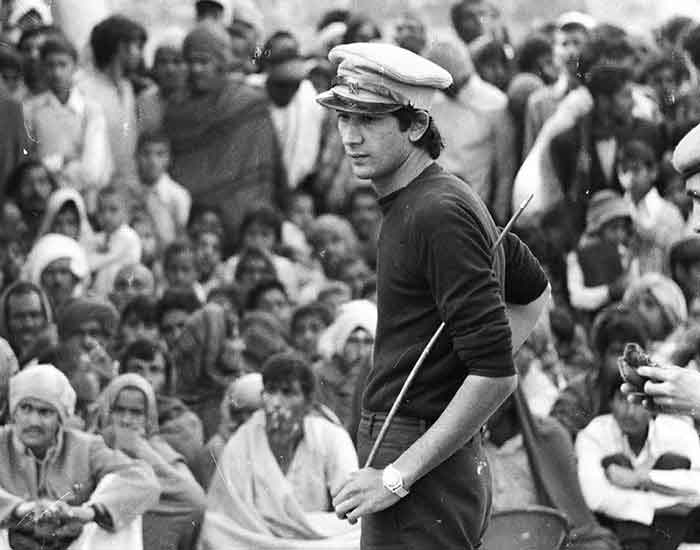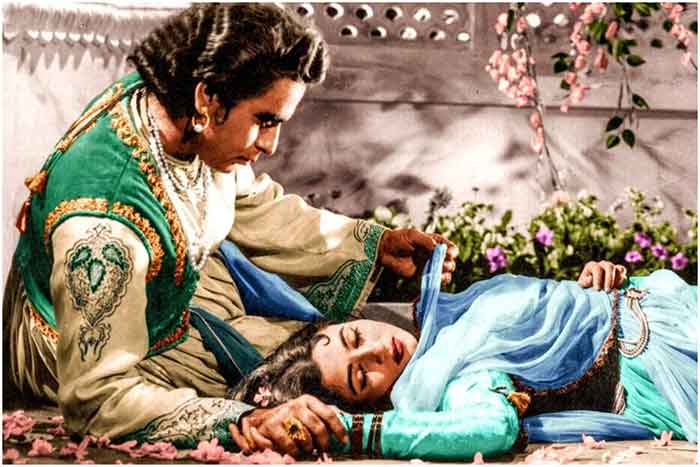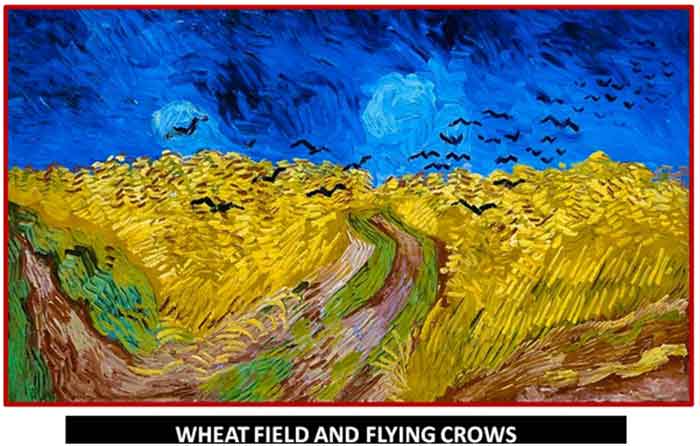Riverine nostalgia in post-partition Bengali music
Since river valleys and riverbanks have perennially been the life-giving source of all flourishing human civilizations around the earth throughout history (Indus-Ganges, Nile, Tigris-Euphrates, Mississippi, Amazon and a great many more), it is quite natural that when politically and colonially engineered partitions of the homelands of people residing generationally on those riverbanks occur, beyond the multiple wounds inflicted by such partitions (both materially as well as in human terms), writers and especially poets and musicians behold the cruel irony in the artificial dividing of the rivers which carry a common heritage bloodline.
Therefore, there is a profusion of riverine Bengali music, a great many subsequent to the partition of undivided Bengal in 1947 by the British overlords (in conjunction with political enablers within the subcontinent), in which the common heritage and the harmonious lives of the denizens on both sides of the divide are recalled wistfully, and the river (or rivers prior to their dissolution in the sea) is portrayed as the life-giving resource gifted by the motherland.
In what follows, to establish how riverine music has in varying degrees of poignancy, depicted with wistfulness the pain and longing engendered by partition viewed along the lines of rivers which were once a common resource for the people irrespective of religion, color, ethnicity, caste or social strata, I will cite three songs (out of a potentially large collection) by well-known artists of Bengal. Riverine (sometimes boatmen’s, maritime or occupational) songs in Bengal are traditionally of two broad categories- the Baul and the Bhatiali.
The songs are first cited (either entirely or via selected excerpts) in their original Bengali, and thereafter followed by my translations and interpretive comments.
গঙ্গা আমার মা পদ্মা আমার মা
ও ও তার দুই চোখে দুই জলের ধারা মেঘনা যমুনা।।
একই আকাশ একই বাতাস
এক হৃদয়ের একই তো শ্বাস।
দোয়েল কোয়েল পাখির ঠোটে একই মূর্ছনা।
ও ও তার দুই চোখে দুই জলের ধারা মেঘনা যমুনা।।
এপার ওপার কোন পারে জানি না
ও আমি সব খানেতে আছি
গাঙ্গের জলে ভাসিয়ে ডিঙা
ও আমি পদ্মাতে হই মাঝি
শঙ্খ চিলের ভাসিয়ে ডানা
ও আমি দুই নদীতে নাচি
একই আশা ভালবাসা কান্না হাসির একই ভাষা।
দুঃখ সুখের বুকের মাঝে একই যন্ত্রনা
ও ও তার দুই চোখে দুই জলের ধারা মেঘনা যমুনা।।
Ganga my Mother, Padma my Mother
(Performed by Bhupen Hazarika, lyrics by Shibdas Bandyopadhyay, translation ©Monish R Chatterjee 2021)
https://www.youtube.com/watch?v=7WQCITNz31g
[]
Ganga my Mother, Padma my Mother
Alas, tears flow from her two eyes as Meghna, Jamuna.
The same sky, the same air
Within one heart the same breath to share
The doyel here, the koyel there, in their birdsongs the same lilt
Yet, tears flow from her two eyes as Meghna, Jamuna.
I know not whither I dwell, this shore or the other
Verily I am everywhere
Setting my dinghy afloat on the Ganga
Verily I am the boatman on the Padma
And now as the shankha kite, lo
I dance on both rivers, spreading my wings.
The same hope, the same love, the same words for laughter and tears
At the core of every sorrow and comfort the very same anguish
Yet, tears flow from her two eyes as Meghna, Jamuna.
In this moving song about effectively four main rivers (Ganga, Padma, Meghna and Jamuna) which form the several branches of the Ganga as it divides between what is now West Bengal in India and the nation of Bangladesh in the Eastern part of formerly undivided Bengal- the renowned exponent of people’s songs, Bhupen Hazarika, brings to life Shibdas Banyopadhyay’s lyricss. The song is rich in metaphors, in particular the yearning which visualizes the two primary rivers as the life-giving Mother, and the other two as the flow of tears down Mother’s face. Central to the song is the realization that despite the destructive, artificial divide, the people, their language, their love and their longings are all the same.
- ……
মা তোমার মাটির সুরে সুরেতে
মা তোমার মাটির সুরে সুরেতে
আমার জীবন জুড়াইলা
মাগো,
আমার জীবন জুড়াইলা
বাউল ভাটিয়ালীতে।
মা তোমার মাটির সুরে সুরেতে
পরাণ খুইলা মেঘনা, তিতাস
পদ্মারই গান গাই।
সব ভুলে যাই তাও ভুলিনা
বাংলা মায়ের কোল
টাকডুম টাকডুম বাজাই
বাংলাদেশের ঢোল ll
……..
[Translation of this 2nd of 3 stanzas of S.D. Burman’s original- MRC]
Tak Doom, Tak Doom I play the drums of Bengal
(Performed by Sachin Dev Burman, lyrics by Meera Dev Burman, translation ©Monish R Chatterjee 2021)
https://www.youtube.com/watch?v=BSzdOobH1fw
…..
Mother, with the incessant melodies coursing through your soil
You have soothed my very Being
O Mother, you have soothed my very Being
With the strains of Baul and Bhatiali–
Mother, with the incessant melodies coursing through your soil.
And so with all the power my lungs can muster
I sing the songs of Meghna, Titas and Padma-
Mother, I might forget everything else-
But never do I forget
The loving lap of Mother Bengal.
This song belongs in a compendium of songs by the incomparable musician and composer, Sachin Dev Burman which are in the Bengali folk and maritime category, specifically dedicated to Mother Bengal. The second stanza, presented here, refers to two melodic categories symbolic of (undivided) Bengal. The first offer’s the lyricist’s indebtedness to Bengal for having nourished his soul with the rich harvest of Baul (the wandering singer-philosopher sect) and Bhatiali (a maritime musical tradition rooted in songs attributed to boatmen or majhis) songs. The second category is related to songs offered to Bengal’s rivers, here listing three- the Meghna, the Titas and the Padma, all three in today’s Bangladesh.
- এই গঙ্গা সেই পদ্মা হাসি কান্নার দুই দিগন্ত
আমি ডুবলাম যাকে চাইলাম সেইতো দূর।
যদি বৃষ্টির মেঘ হয়ে ঝরতাম ঝাঁপ দিয়ে বুকে তার পরতাম,
দুহাতে জড়িয়ে কাছে টেনে নিয়ে হতাম যদি সোনালী রোদ্দুর।
আজ আমি কত ক্লান্ত যদিগো সে জানতো
আমার এ পিয়াসী মন প্রেমেরই সুধায় হতো শান্ত
যদি স্বপ্নের সেতু দিয়ে বাঁধতাম গান হয়ে কানে তার কাঁদতাম,
ভেঙে দিয়ে লজ্জা পেতে ফুলশয্যা পরাতাম সোহাগের সিদুর।
This Ganga, that Padma, bookends to laughter and tears
(Performed by Manabendra Mukhopadhyay, lyrics by Shyamal Gupta, translation ©Monish R Chatterjee 2021)
https://www.youtube.com/watch?v=feTxLtdrhwQ
This Ganga, that Padma, bookends to laughter and tears
Submerging self, I find, the one I seek remains out of reach.
If I could turn into rainclouds, gladly to her bosom would I plunge
Were I the sun’s golden rays, with my two arms would I embrace.
Wish she would know (I feel) so worn out and low
This thirsty mind of mine, pacified at last by love’s sweet wine
Building dream bridges in my sleep, into her ears would I weep
Eschewing all shame, a bed of roses would I make, and romance her with sindoor.
This third song by Manabendra Mukhopadhyay carries the wistfulness of the divided rivers into a different domain. While the majority of the riverine partition songs depict the rivers in terms of a maternal image, this particular song views them from a romantic perspective whereby the separation makes the loved one unreachable, and the paramour may at best wistfully imagine becoming rainclouds, sunlight or even a bridge across their dreamscape in order to achieve a semblance of closeness to the object of their love.
Glossary:
doyel, koyel – songbirds of Bengal
Ganga, Padma, Meghna, Jamuna, Titas- revered rivers of the sub-continent
shankha kite- a white plumed kite (literally, conch-kite)
Baul, Bhatiali – wandering singer-philosophers; riverine songs
Sindoor – vermillion, used in the partition of a woman’s hair
Dr. Monish R. Chatterjee, a professor at the University of Dayton who specializes in applied optics, has contributed more than 130 papers to technical conferences, and has published more than 70 papers in archival journals and conference proceedings, in addition to numerous reference articles on science. He has also authored several literary essays and four books of literary translations from his native Bengali into English (Kamalakanta, Profiles in Faith, Balika Badhu, and Seasons of Life). Dr. Chatterjee believes strongly in humanitarian activism for social justice.
Monish R Chatterjee © 2021















































